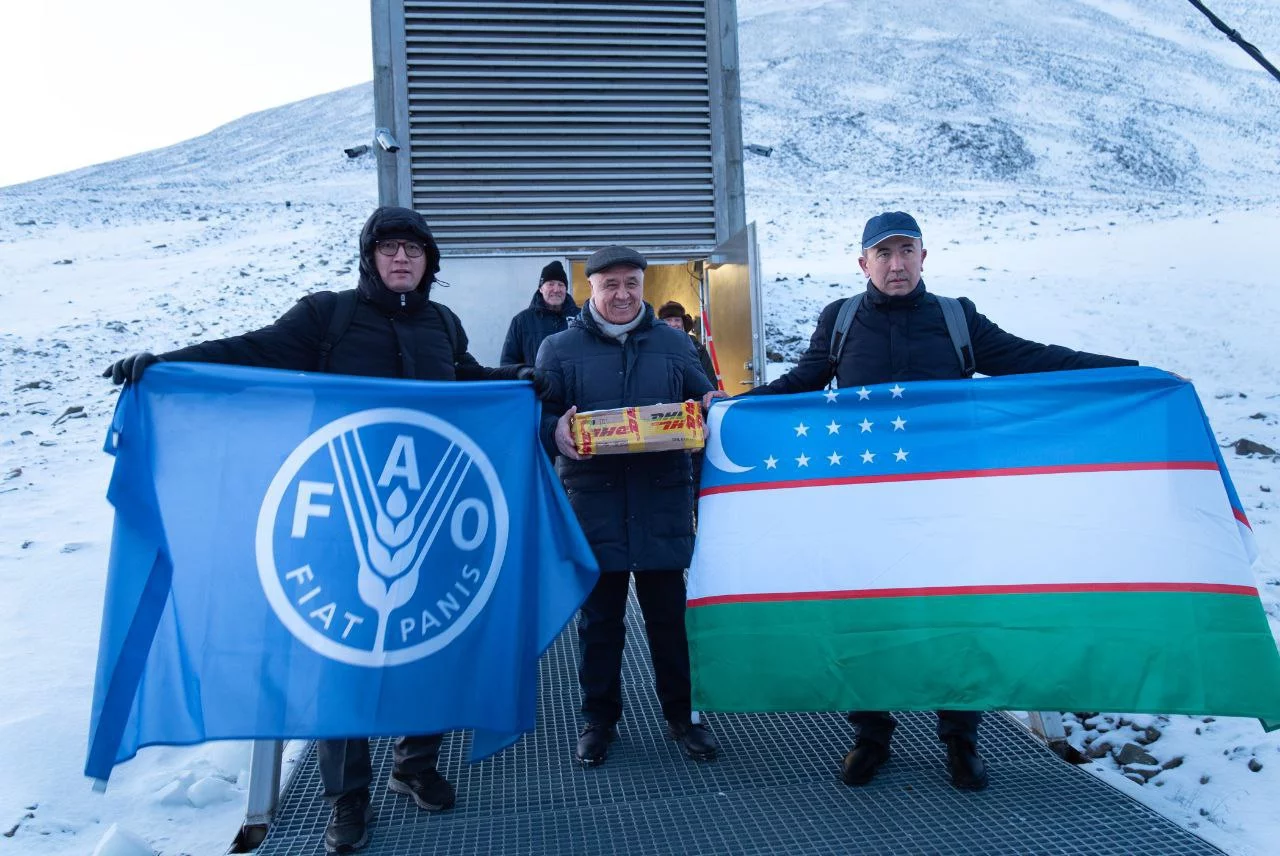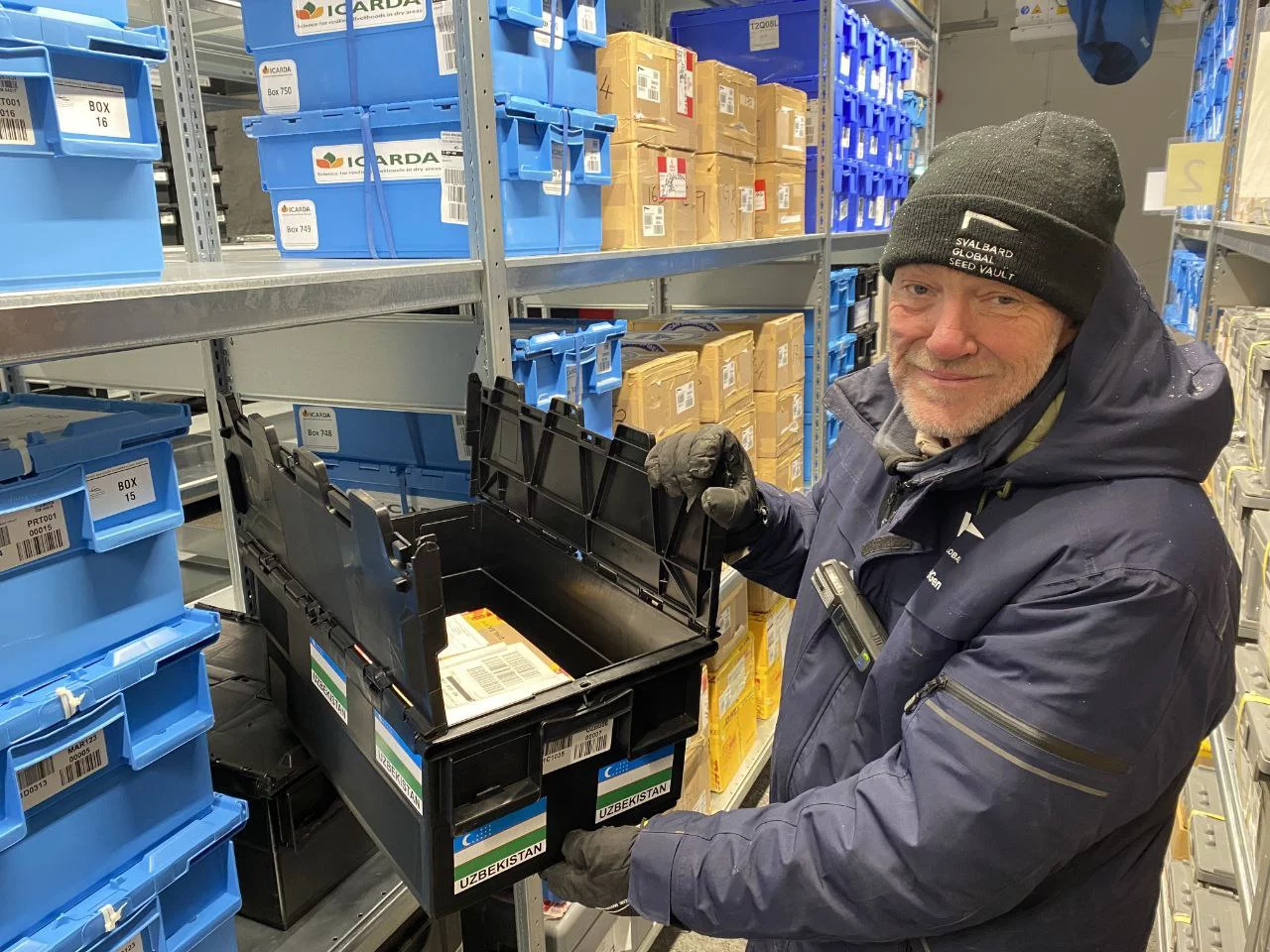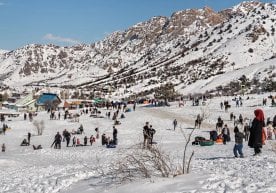Uzbek seeds were delivered to the "Doomsday Warehouse" in the Arctic

Uzbekistan has donated its valuable agricultural seeds to the "Doomsday Warehouse," the world's most famous seed storage center located in the Norwegian archipelago of Spitsbergen, the Ministry of Agriculture reported.
This initiative is assessed not only as important from a scientific point of view, but also as a major step towards preserving the national agricultural heritage. Thus, Uzbekistan became one of the first countries in Central Asia to leave its mark on the World Seed Repository located in the Arctic ice.
It is noted that the sample set sent to the warehouse included more than 20 local varieties of watermelon, melon, tomatoes, peppers, carrots, onions, eggplants, and others. Among them, the wheat variety "Kairaktosh" is of particular importance. These seeds will be of invaluable importance not only for scientific research but also for ensuring food security in the future.

This project was implemented in cooperation with the Ministry of Agriculture of Uzbekistan, the Research Institute of Plant Genetic Resources, the Food and Agriculture Organization of the United Nations (FAO), and the Northern Center for Genetic Resources (NordGen). Through this process, the organizations aim to preserve the genetic diversity of the country's agricultural crops, strengthen the national gene pool, and ensure food sustainability at the international level.
The "Doomsday Warehouse," located in the Spitsbergen Archipelago, is known as the safest seed storage facility in the world. It is built in the Arctic permafrost zone, where the temperature is constantly maintained at minus 18 degrees. These conditions allow seeds to be preserved in their natural state for hundreds of years.

Currently, there are more than 1.1 million different seed samples here. Scientists believe that such a system significantly reduces the risk of plant species disappearing due to natural disasters, conflicts, or economic crises.
The "Doomsday Warehouse" is operated under a trilateral agreement between the Norwegian government, Crop Trust, and NordGen. Thousands of scientific centers around the world have been delivering their crops to it.
This step by Uzbekistan is recognized as an important step towards promoting the national agro-industrial sector at the international level, demonstrating scientific potential, and ensuring food security for future generations.
This event once again testifies to the fact that Uzbek agriculture has not only historical roots, but also a rich biogenic heritage, valuable on a global scale.
Read “Zamin” on Telegram!





















